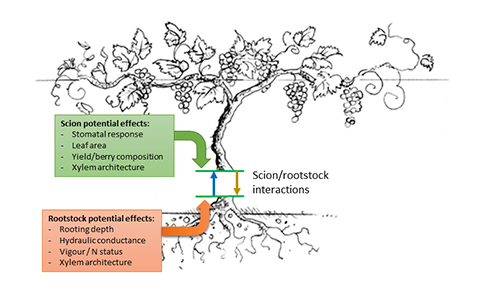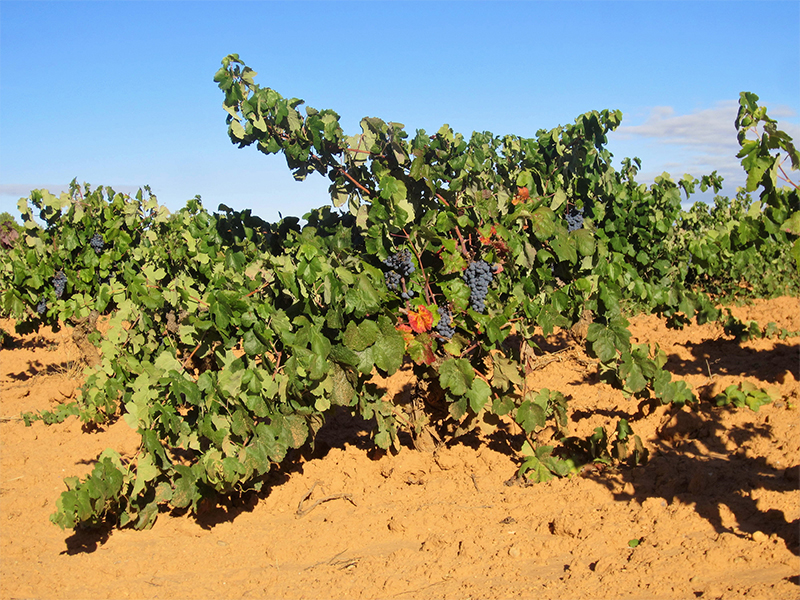Understanding and quantifying the contribution of genetic components to the diversity of grapevine environmental response

Source: Diego S. Intrigliolo Molina, CSIC
Winegrape production is one of the most economically important agrosystems in Europe. Grapevine has a large breadth of genetic diversity at the rootstock, variety, and clone levels. This leaves growers with the open-question of which is the best tool(s) to adapt their vineyards to specific environmental challenges (e.g. heatwaves, drought, waterlogging, etc). At the scientific level, it is essential to understand the genetic plasticity of rootstocks, varieties and clones (and their interactions) to further adapt and improve the current planting material and to preserve the genetic diversity of grape varieties used across Europe.

Source: Diego S. Intrigliolo Molina, CSIC
Standards for physiological traits need to be defined, and the influence of the diverse genetic backgrounds to the value and flexibility of these traits under different environmental conditions needs to be understood. With this in mind, project DiverGrape has been designed including partners from four European countries with varying environmental and vineyard conditions. The partnership is exchanging pre-doctoral and postdoc researchers using a standardized methodological approach based on both eco-physiology and metabolomics tools to quantify the contribution to environmental response of: i) clonal variation within given local varieties, ii) rootstock material for a given variety and iii) the interaction between rootstock and scion. Taking advantage of existing vineyards with a variety of genetic material located in different European viticulture areas, the partnership is determining how environment drives grapevine plasticity to specific climates.

Source: Diego S. Intrigliolo Molina, CSIC
At the end of the project execution, we plan that 3 Practice Abstracts will be developed including: i) a farmer guide on how to select rootstocks genotypes for adapting the main grapevine cultivars to climate change, ii) the clonal diversity contributions to the scion responses to environmental stress and iii) options to modulate vine adaptation and grape and wine composition depending on the rootstockXscion interactions. Therefore, the results obtained through project DiverGrape will provide grape growers with the knowledge to optimize the existing grapevine genetic diversity in order to adapt their vineyards to more extreme climate situations.

Diego S. Intrigliolo Molina
Spanish National Research Council (CSIC). Desertification Research Center (CIDE-CSIC-UV-GVA), Spain
Email: diego.intriliolo@csic.es
Gregory Gambetta
INRAE. UMR 1287 - Ecophysiologie et Génomique Fonctionnelle de la Vigne, France
Jose Carlos Herrera
University of Natural Resources and Life Sciences, Vienna. Department of Crop Sciences, Austria
Twitter: https://twitter.com/AguaCide/status/1633392383793692674?s=20